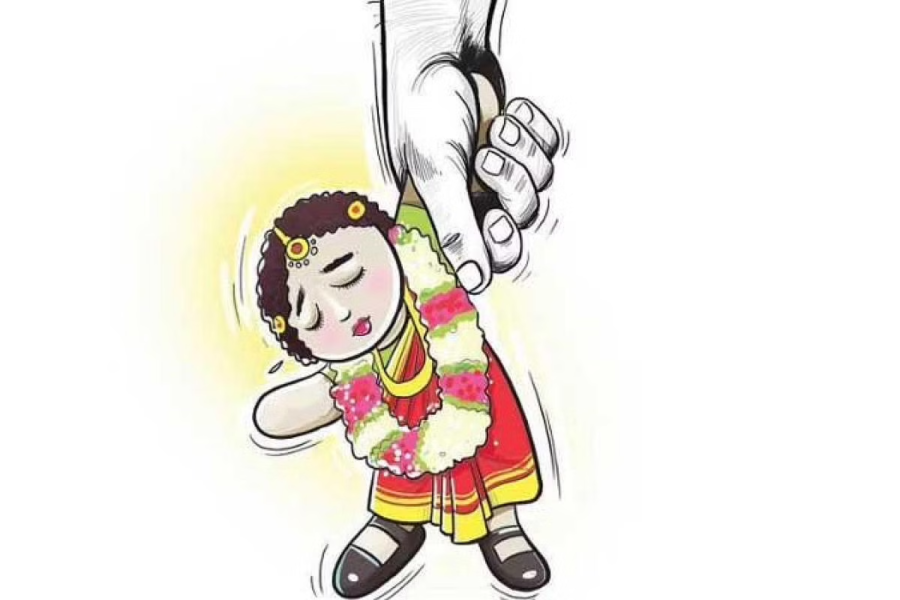Title: Hardev Singh v/s Harpreet Kaur & Ors
Introduction
Welcome to the official blog of the Law Offices of Kr. Vivek Tanwar Advocate and Associates, where we are dedicated to providing litigation support services for matters related to Child Marriage. In today’s blog post, we aim to shed light on the prevailing issues surrounding Child Marriage, the legal framework in place for their protection, and the steps we can take as a society to combat these acts.
The case of Hardev Singh v/s Harpreet Kaur & Ors delves into the intricacies of child marriages, parental consent issues, and the interpretation of the Prohibition of Child Marriage Act, 2006. The Supreme Court’s judgment in this matter not only clarifies legal uncertainties but also addresses the broader societal context surrounding child marriages.
Facts:
Hardev Singh and Harpreet Kaur married without parental consent, prompting police protection due to parental objections. The High Court initially granted protection but later, upon the father’s application, ordered the registration of an FIR under Section 9 of the Prohibition of Child Marriage Act, 2006. The grounds for this were discrepancies in the appellant’s stated age.
Issues:
- Validity of Criminal Appeal:
- Whether the High Court’s order initiating criminal proceedings against Hardev Singh under Section 9 is valid?
- High Court’s Power to Recall/Review:
- Whether the High Court have the authority to recall/review its order in criminal matters?
Judgment:
The Supreme Court rendered the following key decisions:
- Error in Age Determination:
- The High Court erred as per school records; the appellant was 17, below the Act’s defined age of 18. Therefore, Section 9 couldn’t be applied.
- Gender-Neutral Interpretation:
- The literal interpretation of Section 9, penalizing male adults, was deemed against the Act’s objective – the protection of minor female children. The Court emphasized interpreting the section in the context of gender discrimination and violence against females.
- The intent of the Prohibition of Child Marriage Act:
- The Act aims to protect child brides, as evident in its legislative history. Punishing male adults contracting child marriage serves the broader purpose of safeguarding minor female children.
- Review Power of High Court:
- The Supreme Court clarified that there is no provision for reviewing or recalling orders in criminal matters under Section 482 of the Criminal Procedure Code, 1973.
The judgment brings clarity to the legal landscape concerning child marriages, emphasizing the Act’s underlying intent rather than a strict literal interpretation. However, certain challenges and discrepancies persist.
- Age Discrepancy: The variance between the Indian Majority Act (considering males adults at 21) and the Prohibition of Child Marriage Act (punishing males above 18) reveals inconsistencies in dealing with adulthood.
- Voluntary Annulment: The Act provides for voluntary annulment rather than mandatory annulment, leaving room for individual discretion.
- Gender Disparities: Section 9 only penalizes adult males, lacking provisions for adult females involved in child marriages. While the Act’s historical context is acknowledged, modern societal norms necessitate revisiting such gender-specific measures.
- Legal Ambiguities: The judgment resolves certain ambiguities but highlights the need for a more comprehensive approach to child marriage laws, considering evolving societal norms.
Conclusion
In conclusion, while the Supreme Court’s ruling clarifies aspects of the Prohibition of Child Marriage Act, 2006, the complexities and evolving societal norms demand a more nuanced and inclusive legal framework. Balancing the protection of minor children with the recognition of individual rights is crucial in fostering a legal system that aligns with contemporary values.
We are a law firm in the name and style of Law Offices of Kr. Vivek Tanwar Advocate and Associates at Gurugram and Rewari. We provide litigation support services for matters related to the Prohibition Of Child Marriage Act 2006.

